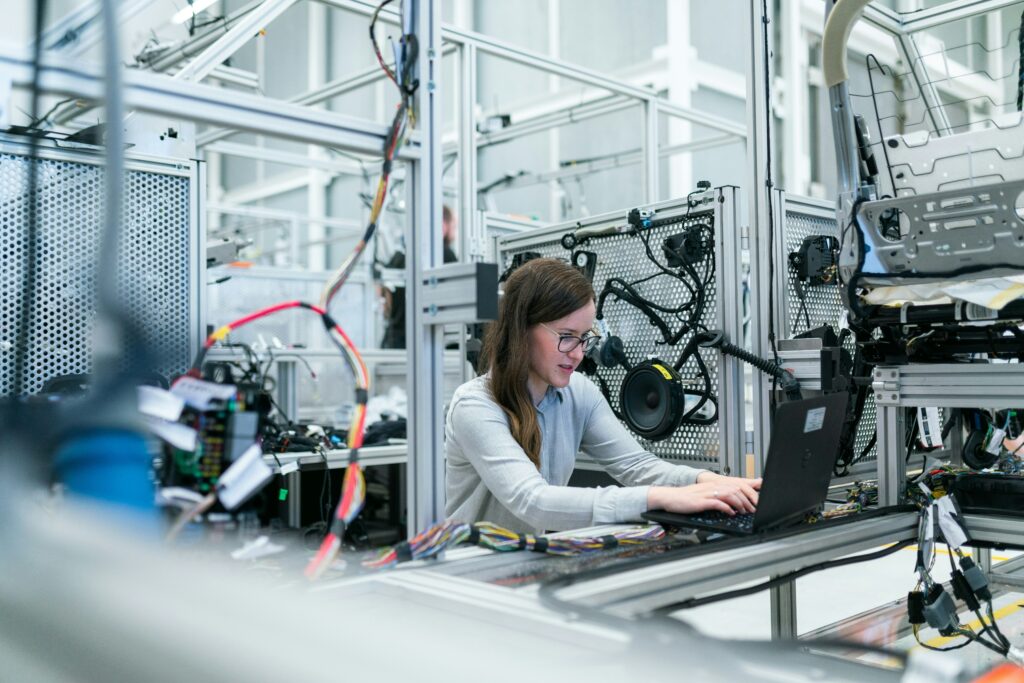Addressing the UK manufacturing skills shortage: the role of precision robotics
Background
The UK’s manufacturing sector is facing significant challenges stemming from a marked skills shortage. As industries such as nuclear, aerospace, and automotive grapple with the realities of an aging workforce and a lag in new talent, the sector’s ability to maintain its competitive edge and meet future demands is at risk. One solution lies in the adoption of robotics, particularly precision robotics, which can mitigate these risks and help secure the future of UK manufacturing.
The skills shortage crisis
The skills gap in the UK manufacturing sector is a pressing issue, with the Engineering UK report indicating a significant shortfall of skilled workers across various industries. This gap is particularly pronounced in high-tech sectors such as nuclear energy, aerospace, and automotive manufacturing, where specialist knowledge and experience are crucial.
Nuclear industry
In the nuclear sector, the need for highly skilled engineers and technicians is critical, given the complex nature of nuclear power plants and the stringent safety regulations that govern them.

However, the combination of an aging workforce and insufficient new entrants into the field has led to a shortage of qualified professionals. This deficit threatens not only the operational efficiency of existing plants but also the development of new projects essential for the UK’s energy future.
Aerospace industry
The aerospace industry is similarly affected, with the demand for skilled workers to design, build, and maintain sophisticated aircraft outstripping available supply. This gap jeopardises the UK’s position as a global leader in aerospace manufacturing, potentially leading to delays in production, reduced innovation, and lost market opportunities.
Automotive industry
The automotive sector, undergoing rapid transformation towards electric vehicles and autonomous driving technologies, also faces a critical shortage of skills. As the industry shifts towards more technologically advanced manufacturing processes, the need for workers proficient in robotics, software, and electronic systems has surged, leaving traditional manufacturing skills increasingly obsolete.
The role of precision robotics
As these industries struggle with skills shortages, precision robotics emerge as a vital tool to bridge a gap. These advanced robotic systems offer unparalleled accuracy, efficiency, and reliability, which are essential for maintaining and enhancing the quality and productivity of manufacturing processes.
Enhancing quality and reliability
Precision robotics and the use of precise positional data are designed to perform tasks with a level of consistency and accuracy that exceeds human capabilities. In the nuclear sector, precision robots can handle hazardous materials, conduct inspections in radioactive environments, and perform vital maintenance. Using robotics for precision welding is a prime example of its use in the nuclear sector. This not only enhances safety but also ensures that operations continue smoothly despite the skills gap.
In aerospace, precision robotics can manage the complex assembly of aircraft components with minimal error, ensuring that the final product meets the stringent safety and performance standards required in this industry. This reliability is crucial in maintaining the UK’s reputation for producing high-quality aerospace products.
In the evolving automotive industry, precision robotics can streamline the production of electric vehicles, from battery assembly to the installation of advanced electronic systems. This not only improves the quality and reliability of the vehicles but also accelerates the transition towards more sustainable transportation solutions.
Future-proofing the sector
Investing in precision robotics is not just a short-term fix but a strategic move to future-proof the UK manufacturing sector. By integrating these technologies, manufacturers can reduce their reliance on a shrinking pool of skilled workers, insulating themselves from the effects of the skills shortage.
The adoption of precision robotics aligns with the broader trend towards Industry 4.0, where automation, data exchange, and smart technologies drive manufacturing. This positions UK manufacturers at the forefront of global innovation, attracting investment and securing their competitiveness in the international market.
Upskilling the workforce
While precision robotics can mitigate the immediate impact of the skills shortage, they also create opportunities for upskilling the existing workforce. Workers can be trained to oversee and maintain these advanced systems, transitioning from manual roles to higher-value positions that involve programming, monitoring, and optimising robotic processes. This shift not only enhances job security for current employees but also opens new career pathways in the tech-driven future of manufacturing.
The future outlook
The future of UK manufacturing hinges on the decisions made today regarding the adoption of precision robotics. If the industry embraces these technologies, it can expect to see enhanced quality, increased productivity, and sustained competitiveness, even with ongoing skills shortages. This investment will also pave the way for continuous innovation and the ability to adapt to emerging manufacturing trends, ensuring that the UK remains a leader in sectors like nuclear, aerospace, and automotive.
Failing to invest could exacerbate the current skills crisis, leading to reduced production capabilities, lower quality standards, and a decline in global competitiveness. The risk of operational inefficiencies and missed market opportunities would grow, potentially stifling the growth and sustainability of the UK manufacturing sector.
Conclusion
The integration of precision robotics into UK manufacturing is not just a technological upgrade—it is a strategic imperative. By enhancing quality, reliability, and efficiency, these advanced systems address the immediate challenges posed by the skills shortage and position the industry for future success. They offer a pathway to maintain the UK’s leading status in nuclear, aerospace, and automotive manufacturing while fostering a resilient, adaptable workforce.
